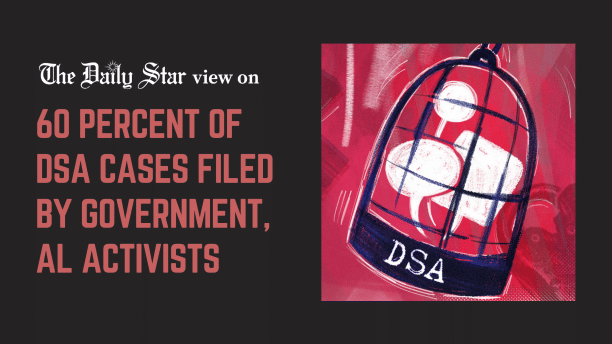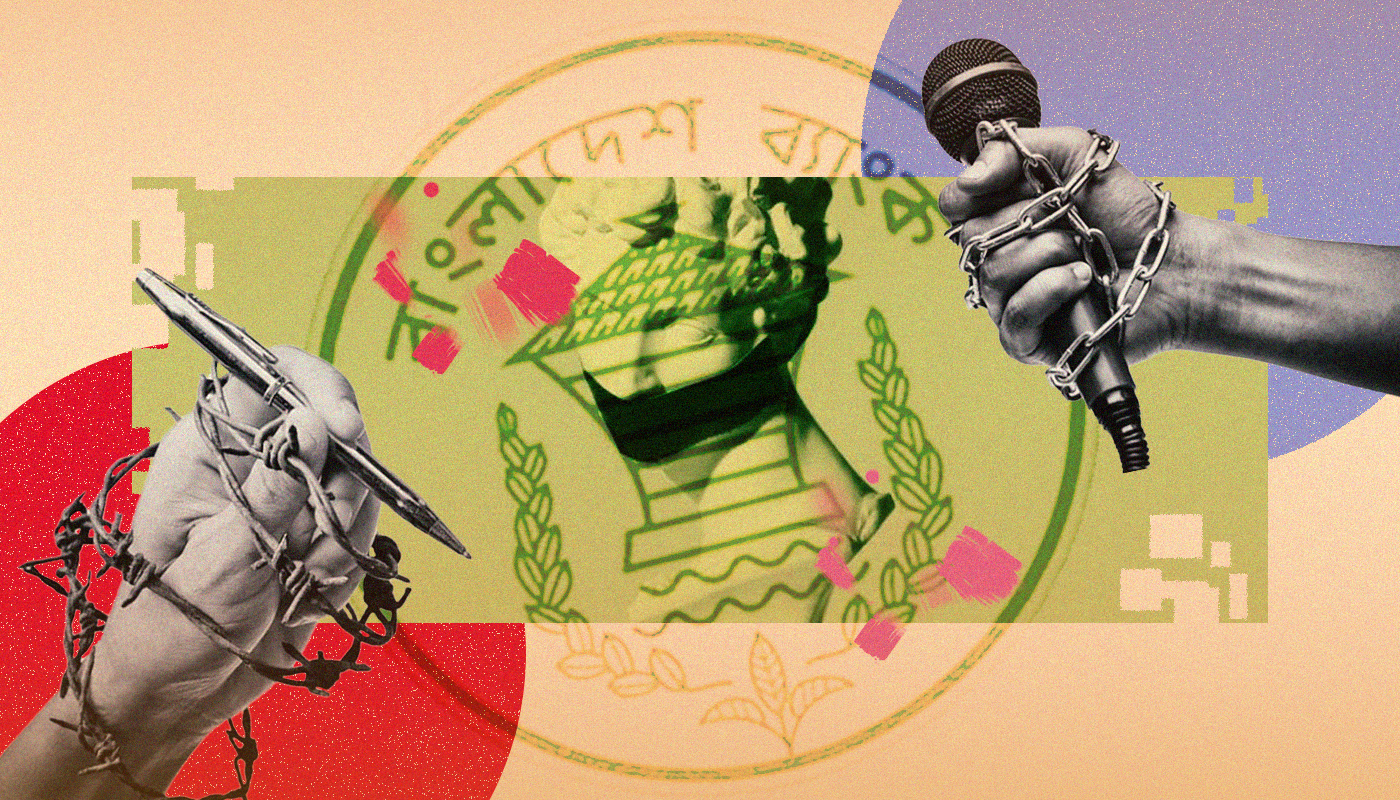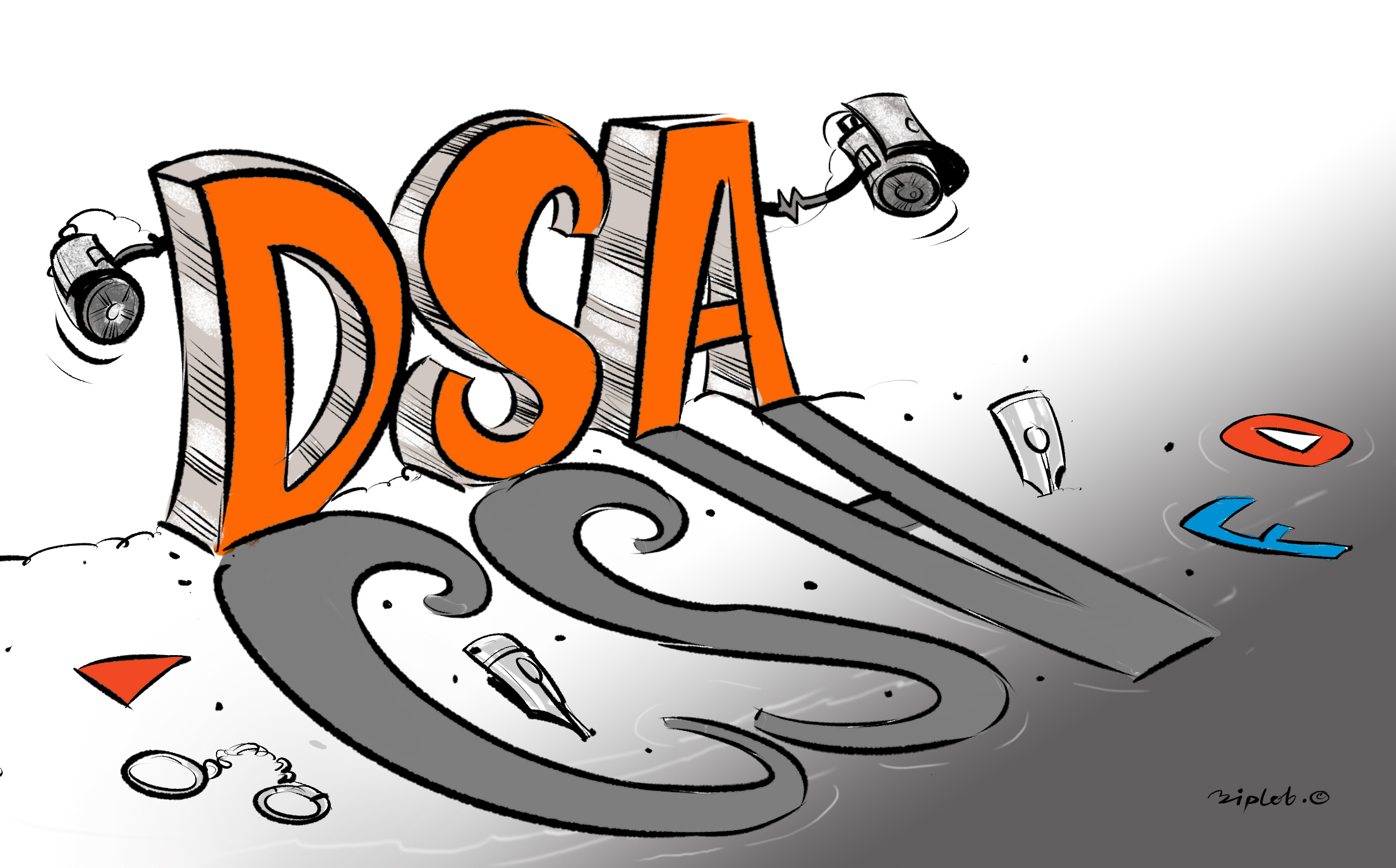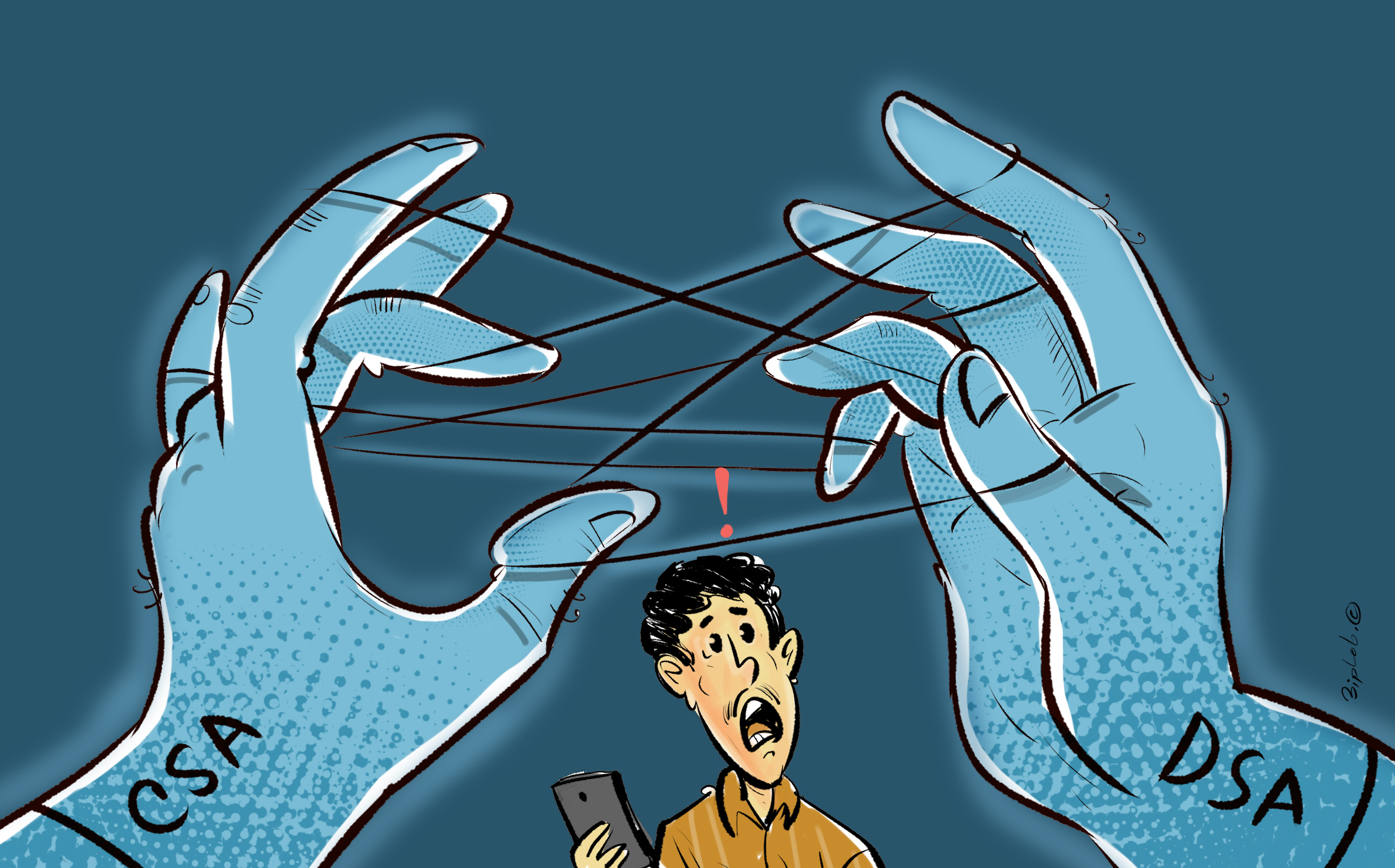DSA was indeed a political weapon

That around 60 percent of cases under the Digital Security Act (DSA) were filed by law enforcement agencies, government functionaries, and pro-government political parties is a clear indication of the fragile state of freedom of expression and the press in Bangladesh. According to a research paper by the Centre for Governance Studies (CGS), at least 4,520 people were charged in 1,436 cases filed between October 2018 and September 2023. Having tracked the identities of plaintiffs in 859 cases, the CGS found that ruling party activists filed 263 of them, whereas activists from other political parties filed nine, showing a clear imbalance in the use of the DSA as a political weapon.
CGS data also shows an increased number of politicians getting arrested under the DSA since August 2022, in the lead-up to the January 7 election. And the fact that not only ruling party members, but government agencies have also been filing so many DSA cases against the political opposition of the ruling party, as well as those viewed as its critics, shows just how much the law has been abused. This culture of silencing critics using state agencies illustrates the extent to which the latter have been politicised, which is another major concern.
Government officials claim that the Cyber Security Act (CSA), which has replaced the DSA, will not have many of these issues. Why, then, are DSA cases against political opponents and journalists still ongoing, particularly when it is clear from data that it was heavily misused? State officials had previously admitted that the DSA was "misused" on a number of occasions, so how can we believe their assurances that the CSA won't be similarly abused despite retaining most of DSA's controversial features?
Whatever changes were made to the CSA were purely cosmetic, and as such it remains every bit as dangerous as the DSA. As we saw with the DSA, at least 451 journalists were sued under it since its inception, and 255 of them were sued for their journalistic reports. The lengthy trial procedures in these cases also act as punishment for the victims. The fact that the Bangladesh Bank has recently barred journalists from entering its premises is a clear indicator as to how state agencies continue to view media freedom.
Under such circumstances, the fears that persisted under DSA are unlikely to go away, and the findings of the CGS further confirm that. Therefore, we strongly urge the authorities to grant bail to all arrested under the DSA or withdraw them—as the allegations against them should no longer be considered valid—and also repeal the draconian sections of the CSA.



 For all latest news, follow The Daily Star's Google News channel.
For all latest news, follow The Daily Star's Google News channel. 


Comments